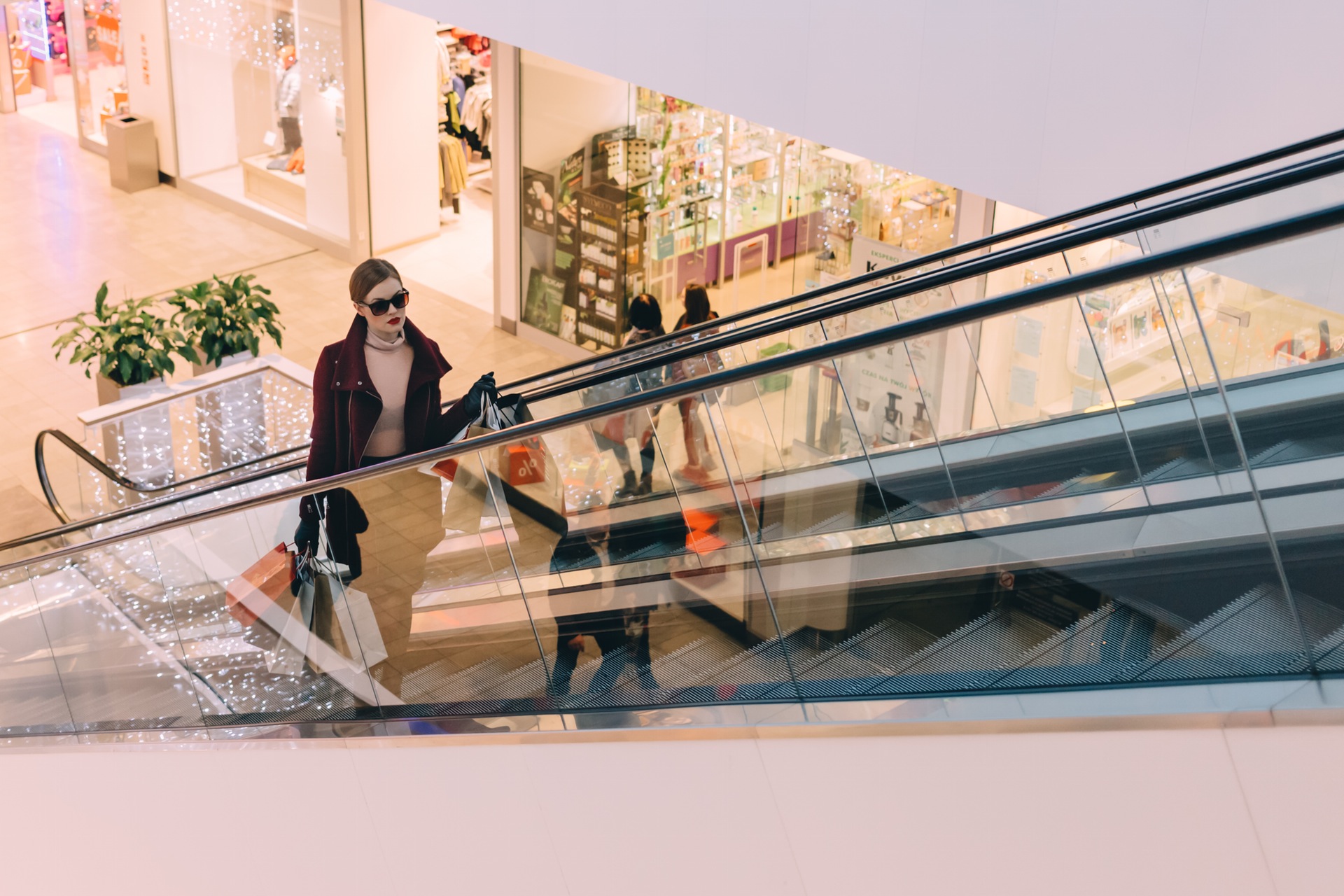
by You and Bamboo Team | Nov 2, 2015 | Blog
It all starts with a pair of high heels, the pair that I decide to wear to the wedding. They don’t feel bad when I try them on, my partner says they make my legs look great, so I’m momentarily happy. They make my legs look ‘sexy’ and compliment my dress so I buy them.
But this one pair of high heels leads to a whole evening of distracted focus, because I can’t just leave it at the heels. I have to compliment the heels with the rest of my outfit and I can’t step out of the house without looking perfect. But … I’m not perfect, so it takes even longer for me to leave the bathroom as I just can’t feel satisfied with my own appearance. I leave feeling self-conscious, already concerned, verging on paranoid, about how I look.
Every second step I’m slipping and wobbling. I think I could break my ankle in these – how do other girls do this? The heels change the way my dress sits, my butt pokes out and my dress slips higher on my leg, so now I’m distracted by pulling my dress down. In my ridiculous focus on my own personal appearance, I forget that I’m actually out to have fun.
Now my feet are sore and I feel yuck. Just as well I’m looking good! My focus is entirely on the outfit I’m wearing, the accessories that I’ve added to it, my make up. I’m constant thinking: Does it look okay? I hope I didn’t smudge it. When others look at me during conversations I can’t focus. I keep wondering why they are staring at me so intensely. Do I have mascara smudged across my eyes? What about lipstick on my teeth? Mum always used to have lippy on her teeth, I hope I’m not doing this.
This inner-critique of self-loathing starts to become too much. I spot the wine and sit down. I’ve found my escape. A glass of wine to take the edge off the evening. Perfect.
Perhaps my experience of this is more amplified than a lot of women’s. To be honest, I rarely put myself through this social strain. Most of the time I leave the house in my jeans, thongs and a singlet, even for dinner. One of the perks of where I live is that it’s socially acceptable to step out of the house looking relaxed, normal, even peaceful.
It’s amazing how uncomfortable a pair of shores can make you feel – and that’s before you even consider where they came from, how they were made and by whom, and where they go to when your done with them.
If I let myself, I can really destroy a shopping experience. Perhaps this is why I really don’t like shopping. It is rare that I even let myself buy unneeded accessories any more.
My mind agonises over the labour that has gone into them, the distance they have travelled to get to me, and the natural resources they have depleted or polluted as part of the process. I review the synthetic materials often in these shoes. I consider the fact they are often designed to break, and that no one fixes them when they inevitably do, as it’s cheaper to buy a new pair. I think about the landfill … and the fact that they will not breakdown in landfill for potentially hundreds or thousands of years.
I then ponder how we can validate selling a pair of shoes for $20 considering all of this. I sigh more deeply …
As you can see, shopping with me is a whole barrel of laughs. I often try and forget about the entire product cycle so I can just enjoy moments. I will buy a cheap pair of shoes, like I did this weekend, because I also can’t justify spending $400 on a pair of shoes that I’m still not sure will last.
I look at my friends’ focus on appearances, daily dramas, simple silly things, and often feel envious and sadness at once. I often wish my mind didn’t consume so many of my experiences, but then I wonder – if some of us didn’t think about these things, us ‘hippies’ as I’ve often been referred to, what would our world become?
We rarely take the time to think bigger picture. We’re rarely encouraged to do so. I wonder if we did, and if we did this daily, perhaps the shoes we would buy would be comfortable, last us years and be fixable when broken. Perhaps we’d spend less time in the bathroom trying to make ourselves look flawless and more time enjoying our friends and family, enjoying the environment around us.
Perhaps we’d feel free to simply be ourselves, to worry less about trying to fill a certain pair of shoes and choose the shoes instead that fit, and serve, us.

by You and Bamboo Team | Sep 14, 2015 | Blog
Since I started my business, it often feels like I never stop working.
Even when socialising I end up talking about my business. Or shall I say businesses. I try and steer conversations away from work when meeting new people or hanging with friends, but more often than not the conversation leads there. People are intrigued by what I do and they want to learn more. Or perhaps my life is now so intertwined with my business that it’s almost impossible to separate them.
It was my birthday this week, and I made the decision to take some time off. For one of the first times since working for myself, I’ve felt no guilt associated with this decision. Ironic that it’s been such a struggle to get to this point, since I try to teach other business owners how important it is to take time out. Time out is reflection time, and is vital to clear thinking. Yet any more than one or two days off a week and I feel guilty. And usually on those days off, traditionally called weekends, I find myself misbehaving and slipping into the office: “Oh, I’ll just do this and that”. Or I’m researching new products, or reviewing other businesses and how can I learn from them.
One of the benefits of being a business owner is supposed to be the freedom to take a day off or work the hours that suit you. Yet my mind often won’t allow me to enjoy this benefit. I feel guilty or worry people will think I don’t work enough, that I’m a bludger. This is pure silliness because I work many more hours than the standard 38-hour week.
But the world is changing. Shouldn’t our ideals around work change too? Like the bamboo plant, shouldn’t we be adapting to our environment, the seasons and our basic needs? Today we limit everything. You’re only allowed this many sick days and this many holidays. Any more or less and you’re not doing it correctly.
Maybe we should be looking at work entirely differently: I’m working for my own mental, emotional and physical needs and the financial gain is simply a benefit.
Perhaps the rules we place around our lives, in particular our working lives, should be based on our personal needs, our body’s needs, our families and what we emotionally and mentally need to feel healthy and balanced.
If you love your work, you often end up working more than the average because it doesn’t feel like work. As the famous James A. Michener quote goes: “The master in the art of living makes little distinction between his work and his play, his labor and his leisure … He hardly knows which is which. He simply pursues his vision of excellence at whatever he does, leaving others to decide whether he is working or playing. To him he’s always doing both. ”
But this always-working-because-we-love-it business also carries with it the ever-present danger of burn out. Many of us don’t allow ourselves or each other the luxury of time off unless we have kids and need to carve up our work days to suit family life, or we get ill and our bodies force us to stop or slow down.
Why do we let social constructs govern our behaviours so much? How often do you hear people claim, “They say that …” when citing the latest supposed expert advise on anything from parenting to personal training? Who are “they” and really do they know you as well as you know you? Shouldn’t you be making the decisions for you?
Work is becoming more flexible than ever before for employees – working from home, hot desking, job sharing, parental leave. Shouldn’t our attitudes to work as small business owners become more flexible too?
Sometimes, no matter how much we love our work, we need to take a moment to reassess why we started our own business in the first place. If the answer is lifestyle, to be masters of our own destiny and trust our instincts, perhaps it’s time to reconnect with that original intent. To listen to our own inner voice, rather than the opinions and expectations of others. And, if we feel like a day off, to damn well take it, birthday or not.

by You and Bamboo Team | Sep 2, 2015 | Blog
Sandwich grill purchased for $7…. Kmart?.. Bargain!
Stick figures hunting for bargains
‘Damn right it’s a bargain, wouldn’t the materials cost more than that?!’ A little voice echo’s in my mind.
‘Why shop anywhere else?’
Sometimes this voice is my own. Sometimes this is the voice of those who surround me.
I cringe. Yuck.
Right now I’m in my ‘serious’ analytical zone. My half-arsed attempt to smile is failing as I begin to illustrate my strong distaste at the idea of people purchasing things, without consideration for the production process or the afterlife of the product.
Many people simply think… ‘it’s a bargain! BUY NOW!’
This buy behaviour surrounds me daily, by many close to me, even those living with me… Ah crap… even by me, myself. Yes, sometimes the serious zone switches off and I get drawn into this zombie natured bargain purchasing behaviour.
Products are so often purchased in naivety based on price, not neccessarily on quality or our actual need factor… Do I need another appliance?
This mentality is weird, we want to feel as though we have purchased something ‘good’, for a price that is better than below the products worth. Why?
We want it cheap, we want it now and we want, what we want, cause… we think we need it or maybe cause we can?
Rarely, do we think past our own ‘needs’. Maybe it’s not cause were selfish or self absorbed, but more because we’ve never really had to think to? Maybe cause that’s what advertising processes us to do?
Everything is so easy these days for us, if we need it we get it, or we wait for it to go on sale, then we get.
Ah material life, it’s so… accessible.
In our world of want and urgency, we forget to understand or even ask, where our products comes from, how they are made, or by whom. Sometimes we don’t even consider what they are actually made of. Imagine if we did actually think about it, ‘nice smelling chemicals, that’s the perfect soap for my skin, buy now!’
Do you ever wonder what effects a product has? The effects the product can have on you or the planet? Or maybe the communities around us.
One episode of shopping can often lead to an incredible amount of wasted plastic, think packaging, thick labelling, think the product itself and then the bag you take it home in. Where does all of that end up? Do we really need all of this extra stuff?
If you decide to start asking questions about your products, would you know what to do with the answers you receive? ‘This product is made in China” Hmm… What does ‘made in china’ actually mean?
To one business, made in China could mean sustainability, ethical labour and a significant contribution to building of better communities. Whilst the same product developed by another business, could be contributing to the estimate 38.5 million in slavery within the world and the destruction of the Amazon rainforest, to create individual wealth.
Slavery… have you ever wondered if that is how we get our products so cheap?
Maybe you already ask questions and looking for your answers in organic and ethical certification. Products positive certifications, do they provide us with the answers?
Maybe, but some businesses often can’t afford the ongoing costs of implementing this sort of certification. On another, I question, should they even bother?
How many consumers really understand certifying organisations to the level they should?
Who checks on the certifier? What does the certification provided, actually mean? What are the certifying standards? Are their standards the same as your personal standards? 80% organic in my eyes, doesn’t mean organic.
So many of simply trust the certification and forget, they are actually businesses to and often branding not ethics is the goal.
I ask a lot of questions, but I believe in transparency. I’d prefer to buy off the businesses, no matter big or small, that I trust, the ones who provide the answers, who tell their story.
Can you ask more questions? The more questions we ask, the more consumer awareness, the more you encourage the ‘good’ products to be produced, you know the ones, that are good for you and good for the environment.
Let’s start making our product producers accountable!

by You and Bamboo Team | Nov 27, 2014 | Blog
There are some things in life that are not pleasant to talk about. But often, these are the things one needs to discuss. Thrush, jock itch, Candidiasis- we may shy away from these words, pretending they mean nothing to us. But if we are being honest, there is good chance that you have or will be affected by a fungal disease at least once in your life.
More people experience fungal disease, than those who don’t. So don’t be coy, let’s talk about the things making you itchy.
Seventy-five percent of adult women will experience Vulvovaginal Candidiasis aka thrust, at least once in their lifetime. This yeast infection may cause a burning sensation during urination, itchiness, pain and general discomfort. And it’s not just women that are affected by this nasty yeast.
It is less common, but men can also develop genital yeast infections. Jockitch is another fungal infection affecting the groin region. This contagiousinfection is attributed to high levels of moisture, frequent sweating, tight-fighting clothing and humid environments. Symptoms include red andinflamed skin, severe itchiness and discomfort in the groin region.
Thankfully, effective treatments are available. In addition to anti-fungal treatments, there are several ways to manage fungal infections, starting with your underpants.
My mother always told me it is bad to leave your bathers on after swimming. There are a lot of things mothers say that are blatant lies, but then sometimes, mothers tell the truth. As it turns out that there arecertain materials, like those found in swimming costumes, that do not allow adequate ventilation in the panty region. This in turns lets moisture accumulate and yeast love moist conditions. Hence constantly wearing ones bathers can lead to a yeast infection, which, as my mother pointed out, is a bad thing.
The reverse also holds true, that is wearing underpants made from breathable materials can help manage, and in some cases, prevent fungal infections. Now I do not claim that any pair of underpants is magic, but if such things existed then I think bamboo underwear would be a contender.
The primary ingredient in bamboo material is the bamboo stalk. This pulpy fiber has unique wicking properties, which allows the fabric to draw moisture away from the skin. In addition, bamboo fibre is naturally intolerant of fungi making bamboo material ideal for undergarments. They material breathes beautifully, so ventilation is never a problem. And did I mention that bamboo material is incredibly soft, durable and produced using environmentally sustainable methods. Magic underpants? Pretty close, I reckon.

by You and Bamboo Team | Nov 3, 2014 | Blog
I probably shouldn’t have…
Experimented with new bamboo fabric colors, without out wearing gloves… But, but look at how pretty my hands are now!
I probably shouldn’t have… Gone for a surf, when I was supposed to be… Working. But wow, I feel so much more relaxed now and I seem to have achieved all my work anyway.
I probably shouldn’t have… Consumed as much food and wine with those friends of mine. But, it was such a fun night, so many golden memories!
Sometimes doing a probably shouldn’t can be you doing exactly what you should be doing, what is good for your soul, what make’s you happy, but perhaps what society’s mind says…. ‘You are misbehaving!’
I hear many people say, oh to be young again, with so little responsibility… Sometimes it is ourselves that create the notion of responsibility. We place ourselves in the box of the ideals what ‘I should be doing’.
Perhaps sometimes we need to replace the ‘should’ with what feels better to me.
Dani
You & Bamboo Founder








